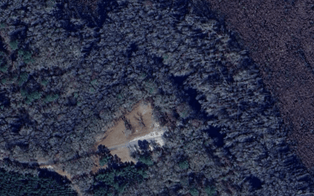Taiwan was deemed one of the most at-risk areas because of its close proximity, ties and transport according to a January study conducted by Johns Hopkins University.
As coronavirus epicenters around the world and across the United States discuss plans of easing stay-at-home orders, reopening the economy and avoiding another spike, one place in the world somehow managed to avoid lockdown procedures altogether while also protecting themselves from any major outbreak.
With the addition of mandatory mask policies and routine temperature checks, Taiwan continued to see long wait times for restaurants, packed bars and bustling streets. Despite having never implemented any stay-at-home orders or non-essential business closures, Taiwan only saw about 450 confirmed cases and seven COVID-19-related deaths.
But the rare feat seems unlikely, considering their long and complicated relationship with China. Taiwan is located about 100 miles from Mainland China, the first epicenter of the coronavirus, and was deemed one of the most at-risk areas because of its close proximity, ties and transport according to a January study conducted by Johns Hopkins University.
Taiwan also sees millions of tourists from China annually. In 2018, Taiwan saw 2.7 million tourists from Mainland China and another 1.6 million from Hong Kong and Macau in 2018, which made up about 40 percent of their tourism that year, according to Taiwan’s tourism bureau.
But the country took measures early to protect its 24 million citizens. They enacted travel bans early, ramped up PPE production, and initiated widespread testing.
“Personally, I think Taiwan did a great job,” Anthony Cheng said.
Cheng, 25, normally lives in New York City but left to be with his family in Taiwan shortly before coronavirus cases skyrocketed in the United States. He experienced the country’s precautions first hand when he was ordered to undergo a 14-day quarantine upon arrival.
He explained that even before landing, every passenger on his flight was given a special COVID-19 declaration form, on which they must note where they had been in the last two months, where he would be staying and how he was currently feeling.
When Cheng arrived at the airport, he and other passengers underwent a temperature check before he was ushered to the taxi stand. Instead of allowing new arrivals to get home by public transportation, they were offered government-subsidized taxis for their trip home. “They will measure your temperature at the airport,” he explained. “Before you get in the car, they will spray you down with alcohol to make sure you’re disinfected from the airplane. They will spray your luggage and clothes, even your phone to make sure they get everything.”
At home, his 14-day quarantine began with isolating himself in his family’s home. Cheng had to make a call to officials every day to check in and report his temperature. For meals, Cheng’s family would leave him a tray of food by the stairs that he would eat in isolation. When he was done, he would spray the dishes down with rubbing alcohol, and leave them by the stairs.
Anyone found leaving their home or breaking quarantine would be subject to a serious fine of $1,000,000 NTD, or about $33,000 USD.
“I started breaking on the fourth day,” Cheng recalled. “It was like torture on my mental health.”
But after completing his 14-day quarantine, Cheng rejoined a bustling society, albeit one that looks slightly different than it did just months ago. Masks must be worn to enter any store or business, and restaurant workers check temperatures and distribute hand sanitizer before seating any diners.
“I feel like the reason why Taiwan can contain the virus so well is because people really care about it and we don’t want it to spread,” Cheng explained. “It’s also a movement that everyone is participating in and I think it’s pretty beneficial that everyone is so on board.”
RELATED STORIES





